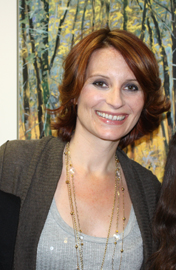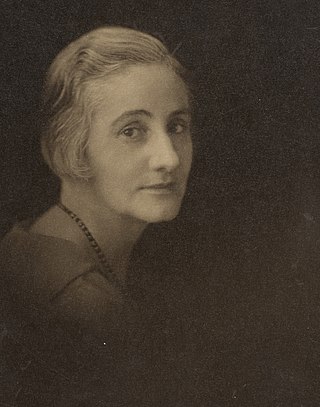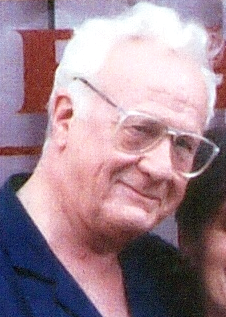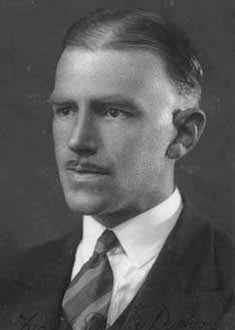
Ethel Florence Lindesay Richardson, known by her pen name Henry Handel Richardson, was an Australian author.

Dorothy Coade Hewett was an Australian playwright, poet and author, and a romantic feminist icon. In writing and in her life, Hewett was an experimenter. As her circumstances and beliefs changed, she progressed through different literary styles: modernism, socialist realism, expressionism and avant garde. She was a member of the Australian Communist Party in the 1950s and 1960s, which informed her work during that period.

Kathleen Kylie Tennant AO was an Australian novelist, playwright, short-story writer, critic, biographer, and historian.

Meggin Patricia Cabot is an American novelist. She has written and published over 50 novels of young adult and adult fiction and is best known for her young adult series The Princess Diaries, which was later adapted by Walt Disney Pictures into two feature films. Cabot has been the recipient of numerous book awards, including the New York Public Library Books for the Teen Age, the American Library Association Quick Pick for Reluctant Readers, the Tennessee Volunteer State TASL Book Award, the Book Sense Pick, the Evergreen Young Adult Book Award, the IRA/CBC Young Adult Choice, and many others. She has also had number-one New York Times bestsellers, and more than 25 million copies of her books are in print across the world.

Mary Reibey née Haydock was an English-born merchant, shipowner and trader who was transported to Australia as a convict. After gaining her freedom, she was viewed by her contemporaries as a community role model and became legendary as a successful businesswoman in the colony.

Katharine Susannah Prichard was an Australian author and co-founding member of the Communist Party of Australia.

Clifton Ernest Pugh AO, was an Australian artist and three-time winner of Australia's Archibald Prize. One of Australia's most renowned and successful painters, Pugh was strongly influenced by German Expressionism, and was known for his landscapes and portraiture. Important early group exhibitions include The Antipodeans, the exhibition for which Bernard Smith drafted a manifesto in support of Australian figurative painting, an exhibition in which Arthur Boyd, David Boyd, John Brack, Robert Dickerson, John Perceval and Charles Blackman showed; a joint exhibition with Barry Humphries, in which the two responded to Dadaism; and Group of Four at the Victorian Artists Society Gallery with Pugh, John Howley, Don Laycock and Lawrence Daws.
Peg Powler is a hag and water spirit in English folklore who inhabits the River Tees. Similar to the Grindylow, Jenny Greenteeth, and Nelly Longarms, she drags children into the water if they get too close to the edge. She is regarded as a bogeyman figure who is invoked by parents to frighten children into proper behavior. The 19th century folklorist William Henderson describes Peg Powler as having green hair and "an insatiable desire for human life" and she is said to lure people into the river to drown or be devoured. The foam or froth which is often seen floating on certain parts of the Tees is called "Peg Powler's suds" or "Peg Powler's cream".

June Clyde was an American actress, singer and dancer known for roles in such pre-Code films as A Strange Adventure (1932) and A Study in Scarlet (1933).

Winifred Lewellin James was an Australian writer. As a novelist, travel writer and journalist, her career began with her first novel published in 1907. During her time in London, she lost her Australian nationality and after a fight extending over many years, regained her nationality in 1935. Her final novel, The Gods Arrive, was published in Melbourne shortly after her death in 1941.
For the British artist, Margaret Geddes (1914-1998), see Margaret Geddes (artist).

Anna Couani is a contemporary Australian poet and visual artist.
Andrea Goldsmith is an Australian writer and novelist, known for her 2002 novel The Prosperous Thief.
Janine Burke is an Australian author, art historian, biographer, novelist and photographer. She also curates exhibitions of historical and contemporary art. She is Honorary Senior Fellow, Faculty of Fine Arts and Music, University of Melbourne. She was born in Melbourne in 1952.

Frank Dalby Davison, also known as F. D. Davison and Freddie Davison, was an Australian novelist and short story writer. Whilst several of his works demonstrated his progressive political philosophy, he is best known as "a writer of animal stories and a sensitive interpreter of Australian bush life in the tradition of Henry Lawson, Joseph Furphy and Vance Palmer." His most popular works were two novels, Man-shy and Dusty, and his short stories.
Coral Magnolia Lansbury was an Australian-born feminist writer and academic. Working in the United States from 1969 until her death, she became Distinguished Professor of English and Dean of Graduate Studies at Rutgers University.
Sophie Cunningham is an Australian writer and editor based in Melbourne. She is the current Chair of the Board of the Australian Society of Authors, the national peak body representing Australian authors.

The Strange Woman is a 1946 American historical melodrama film directed by Edgar G. Ulmer and starring Hedy Lamarr, George Sanders and Louis Hayward. It is based on the 1941 novel of the same title by Ben Ames Williams. The screenplay was written by Ulmer and Hunt Stromberg. Originally released by United Artists, the film is now in the public domain.
The National Book Council Banjo Awards were presented by the National Book Council of Australia from 1974 to 1997 for works of fiction and non-fiction.
Realities Gallery was a Melbourne gallery which showed work of Australian art of the western and indigenous traditions, and Pacific and international art. It operated from 1971 to 1992.












